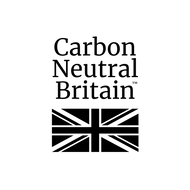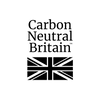Project 3229: Pioneering Methane Capture and Green Energy in the Netherlands

In the ongoing fight against climate change, few initiatives highlight the transformative power of circular agriculture quite like Project 3229: Methane Capture and Power Generation in the Netherlands. Selected by Carbon Neutral Britain, this innovative project brings together sustainability, regulatory compliance, and renewable energy in a remarkable example of agricultural progress.
A Collective Effort for a Cleaner Future
Spanning the most southerly regions of the Netherlands, Project 3229 brings together a collective of 30 forward-thinking Dutch farmers. United by a commitment to sustainable farming, these dairy and agro-pig farms have adopted cutting-edge biogas systems that capture methane emissions directly from animal manure—a major source of agricultural greenhouse gases.
Methane is a particularly harmful greenhouse gas, with 28 times the global warming potential of carbon dioxide. In the Netherlands, livestock farming is responsible for around 70% of agricultural greenhouse gas emissions, primarily due to the methane produced from manure. Project 3229 offers a viable solution to this pressing issue.
From Manure to Megawatts: Closing the Loop
At the heart of the project is a fully circular biogas process. Instead of traditional manure disposal—which often leads to methane release and nitrogen runoff—waste is collected and stored airtight as quickly as possible. This prevents methane from escaping into the atmosphere. The stored manure is then processed in biogas plants, where anaerobic fermentation breaks it down to produce renewable electricity.
This green electricity is fed directly into the Dutch national power grid, reducing reliance on fossil fuels and contributing to a cleaner energy mix. Additionally, the residual heat generated during this process is captured and repurposed, maximizing energy efficiency.
What remains after fermentation—the digestate—is far from waste. Rich in nutrients, it serves as a natural alternative to synthetic fertilizers, returning essential elements to the soil and promoting healthier crop growth. This creates a regenerative loop that connects livestock farming, arable agriculture, food industry by-products, and energy generation in one seamless cycle.
Funding Sustainability Through Carbon Offsetting
The project is funded through carbon offsetting, a model that allows businesses to invest in verified emission reduction efforts. For participating farms, this funding has made the adoption of expensive biogas infrastructure financially viable. In return, businesses benefit from credible and measurable carbon offsets, while supporting real-world sustainability.
This model demonstrates that environmental responsibility and economic viability are not mutually exclusive
A Model for the Future of Farming
Beyond emissions reduction, the project promotes sustainable livestock management. Cattle feed is largely produced on-site, reducing transport emissions and ensuring traceability. Pigs are nourished using corn and suitable by-products from the beverage and food industries, minimizing waste and promoting resource efficiency.
By aligning with government-imposed nitrogen limits, the farms also ensure compliance with environmental regulations—a growing concern for many in the European agricultural sector.
Project 3229 stands as a beacon of what’s possible when innovation, collaboration, and climate finance come together. It exemplifies how circular agriculture can mitigate climate impacts, reduce reliance on fossil fuels, and promote long-term soil and energy health.
In a time when the agricultural sector faces increasing pressure to reduce its environmental footprint, Project 3229 is a powerful reminder that change is not only possible—it’s already happening. And with the right support, it can scale.
For businesses seeking credible ways to offset emissions, and for farmers navigating a low-carbon future, this initiative is more than a project—it’s a blueprint.






